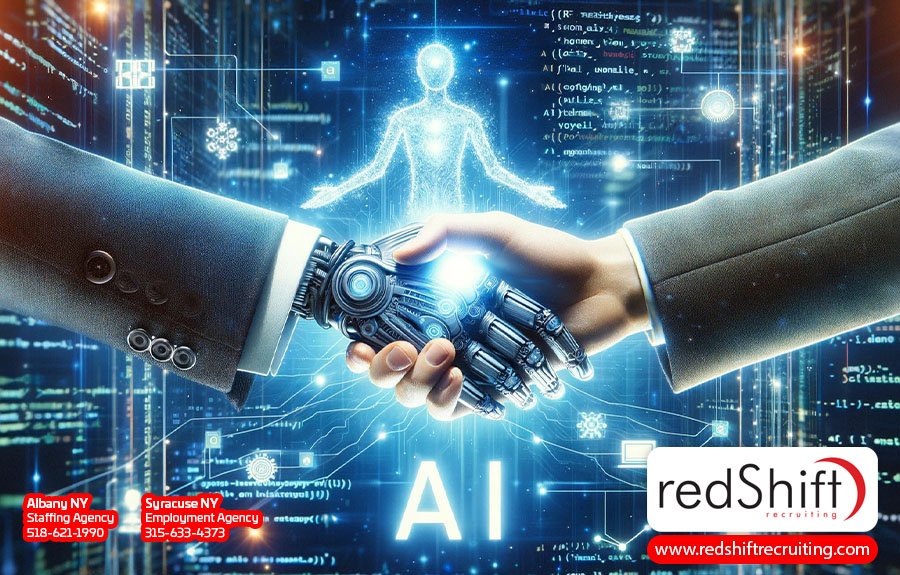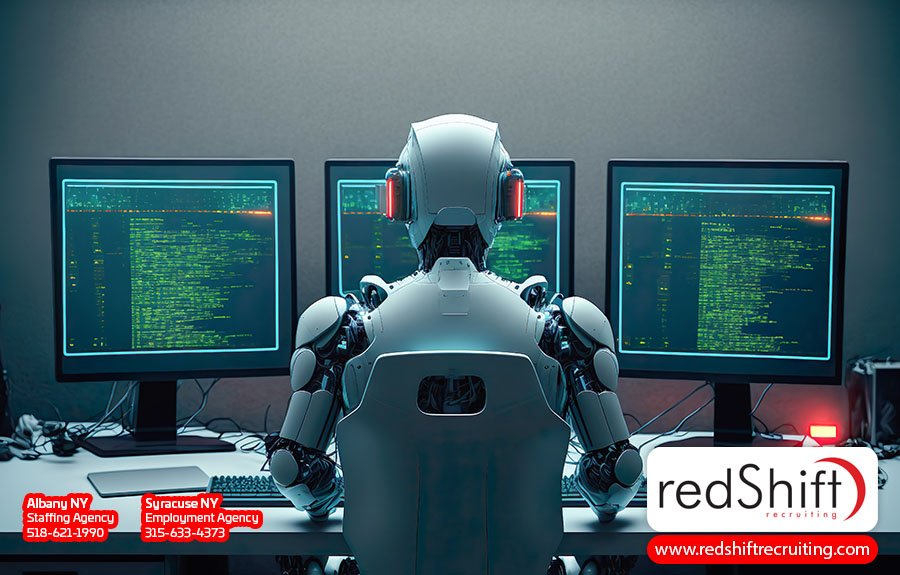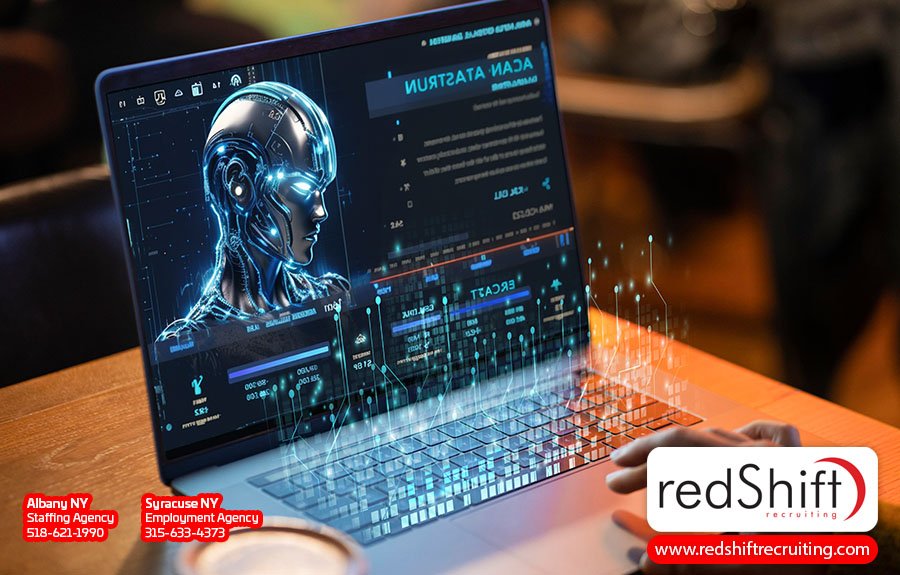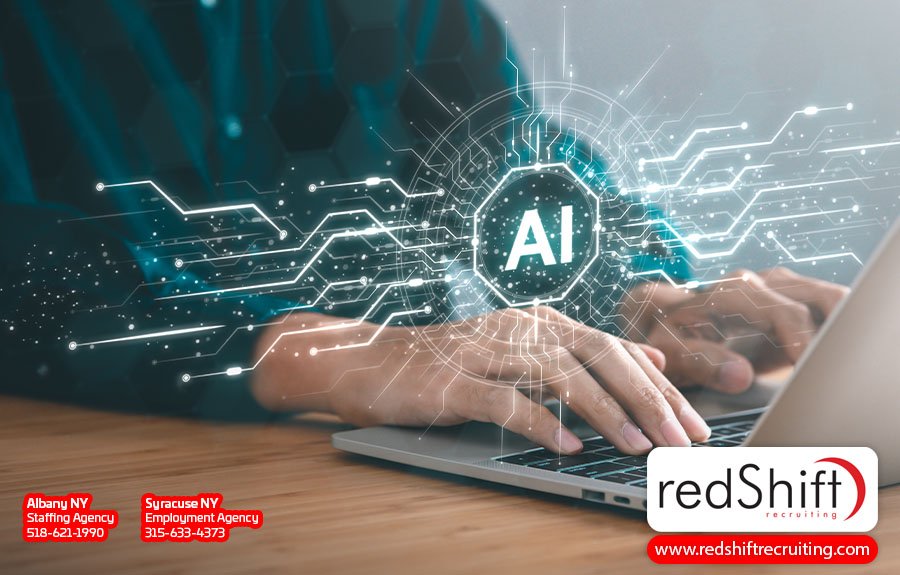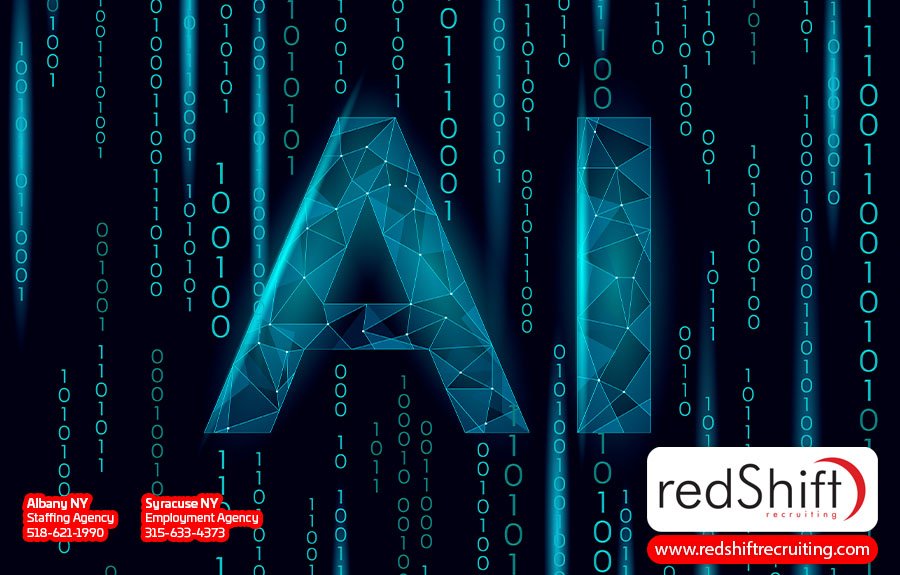AI and the Future Coder: Supercharging Coding With Artificial Intelligence
From theory to application, the advent of Artificial Intelligence (AI) brings many opportunities to the field of software engineering, including exciting developments that will affect the future of programming. In this new era of technological innovation, many IT professionals fear that AI technologies will replace human programmers and eliminate jobs in software engineering and development fields. Rather than replacing programmers, AI empowers them, emerging as the ultimate power tool by turbocharging their computer programming skills, automating tedious tasks, offering optimized solutions, and even foreseeing potential bugs.
By augmenting human capabilities, AI fosters a powerful partnership between humans and machines, revolutionizing the software development lifecycle. This article will discuss the transformative impact of AI on the programming landscape, exploring how AI tools and systems are reshaping the way we code, collaborate, and innovate. By understanding and integrating AI into their workflows, developers can enhance their efficiency and creativity, leaving the mundane aspects of coding to intelligent algorithms and focusing on more creative and complex tasks.
AI as a Coder's Power Tool
The integration of artificial intelligence (AI) into software development is significantly enhancing code generation processes. AI technologies analyze existing codebases and use machine learning algorithms to automate programming tasks, including auto-completion, refactoring, and generating code snippets. This automation accelerates the development process and revolutionizes the way software developers write code by streamlining repetitive and mundane tasks. Using popular tools such as GitHub Copilot and TabNine, developers can obtain real-time suggestions that significantly boost productivity and creativity by reducing the time they spend writing code and allowing them to focus on tasks requiring critical thinking and problem-solving. An emphasis on explainable AI (XAI) ensures developers understand AI-generated code and suggestions, fostering transparency and trust in AI-powered tools.
In bug detection and debugging, AI's role can be equally transformative. Algorithms enable preemptive identification of potential bugs or vulnerabilities, with tools like DeepCode and Hound employing static code analysis and machine learning to improve code quality and streamline debugging. AI's influence further extends to testing and optimization, where it can generate test cases and perform stress testing to identify inefficiencies and suggest improvements in code structure, resource utilization, and performance optimization. This is evident in tools such as Salesforce Einstein Tester and Pachyderm, which automate testing and optimization, facilitating faster deployment cycles and efficient resource allocation. These AI-driven code optimization techniques cater to the nuanced needs of various coding disciplines, offering efficient and scalable software solutions for both front-end and back-end development challenges.
Additionally, AI enhances software projects through automated refactoring and optimization, recommending intelligent alterations that bolster performance and functionality. This support is invaluable across development spectrums, ensuring optimization that aligns with specific project requirements. The emergence of personal coding assistants marks another significant milestone, transforming the coding process into a more interactive and assisted endeavor. Using natural language processing, these virtual assistants provide real-time suggestions for code completion, answer questions, and guide developers through complex tasks, acting as an on-demand knowledge base and problem solver. This personalized support is instrumental in facilitating the adaptation of new technologies and methodologies while reducing the learning curve for new languages and frameworks, making it particularly beneficial for developers specializing in different areas of software development. Whether tackling front-end user interface challenges or back-end system architectures, developers can leverage this intelligent support to enhance productivity, ensure code quality, and focus on delivering more sophisticated and user-centric solutions.
AI-Powered Creativity and Innovation
With the help of AI models and neural networks, the tech industry is witnessing a new era of creative thinking and innovative software solutions. For example, designers and developers can use AI tools to generate design mockups and variations, user interfaces, and even personalized content based on user data. Tools like Landingi and Dream by WOMBO utilize AI to offer personalized applications and new user experiences.
For software engineers, AI systems are capable of suggesting alternative code solutions, code snippets, boilerplate code, and functions based on natural language prompts. One significant area where AI has made an impact is generative AI. This technology enables developers to automatically generate code based on specific tasks or requirements. By harnessing the capabilities of generative AI, developers can significantly speed up the coding process while maintaining accuracy and quality. Leveraging these tools enables them to prototype faster, accelerate discovery, and create innovative solutions. Tools such as SketchCode and Copilot Suggest provide AI-powered code suggestions and experimentation. Additionally, AI's capability to generate entire programs showcases its future potential in automating more comprehensive aspects of software development. AI also empowers customization and scalability in software development, enabling applications to adapt to user needs dynamically. This adaptability is key to developing scalable solutions that can grow with user demand, ensuring software remains efficient and relevant.
Teams working with data-driven development and insights can also benefit from using AI tools to analyze code patterns and identify trends. With tools such as DeepCode Insights and GitLab Intelligence offering AI-powered code analysis and recommendations based on vast data sets, developers can make data-driven decisions, improve code maintainability, and identify code smells.
The integration of AI into development tools further enhances collaboration among team members, facilitating seamless integration and interaction within projects. AI-driven version control systems predict potential conflicts and suggest resolutions, streamlining project workflows and enhancing team productivity. Other AI-powered creative tools include Artbreeder for generative art and Runway ML for video editing and game development, and there are a wide range of applications in testing, debugging, and optimizing code that benefit from AI's capabilities.
Other emerging trends in AI-powered creativity, including research on large language models (LLMs) for code generation and design automation, promise to further transform the landscape, opening up new avenues for innovation and efficiency in software development. The potential of AI-powered creativity is vast, with its role in shaping the future of software development and beyond promising to unlock new dimensions of innovation and efficiency.
Beyond Code: AI's Broader Impact on Development
With AI's expanding capabilities, it’s potential applications within software development are no longer limited to code generation and analysis but instead can encompass various aspects of the development process. With capabilities including design and requirements gathering, automated deployment and infrastructure management, security and threat detection, as well as facilitating effective communication and collaboration, AI is redefining the roles within development teams and enhancing the way developers, project managers, and stakeholders interact and work together.
Data science and AI have revolutionized design and requirements gathering by analyzing user behavior and historical data to inform design decisions and generate initial requirements, providing invaluable information for UI/UX designers and web developers. AI also has the potential to automate deployment pipelines, manage infrastructure, and scale applications, minimizing manual effort and increasing efficiency. In the field of cybersecurity, AI can be used to analyze code for vulnerabilities, detect cyberattacks, and address security concerns proactively.
In industry-specific applications, AI-driven creativity is revolutionizing sectors such as healthcare, finance, and entertainment. For example, in healthcare, AI-powered drug discovery processes are significantly reducing the time and cost of bringing new treatments to market. In finance, AI enhances fraud detection systems with unprecedented precision, and in entertainment, it customizes content recommendations for a personalized user experience. These industry-specific applications demonstrate AI's versatility in driving innovation tailored to unique sector challenges.
AI's impact extends to collaboration and communication as well. It can facilitate better collaboration between developers by assisting with code documentation and streamlining communication processes. AI programs can assist developers in automating repetitive tasks and generating code based on machine learning models and data analysis.
Emerging trends in AI also include its integration into project management and testing optimization, significantly improving efficiency and accuracy. The rise of low-code/no-code development platforms, powered by AI, is democratizing software development, allowing non-technical users to create applications and automate workflows.
The future potential of artificial intelligence in software development is immense, promising to transform the entire landscape. From enhancing developer productivity and software quality to enabling more intelligent and adaptive applications, AI is at the forefront of the next wave of digital innovation, reshaping how we create, deploy, and maintain software.
Challenges and Considerations in AI-Powered Development
While the integration of AI brings numerous benefits and exciting possibilities, it is not without its challenges. Critics of AI cite concerns such as job displacement, arguing that AI's automation of coding tasks could lead to job losses for developers. Ethical worries about bias in algorithms, a lack of transparency, and the potential misuse of AI tools further fuel the debate. Additionally, the emergence of a skills gap, where developers lack the necessary expertise to effectively work with AI, and worries about an overreliance on AI compromising critical human skills like problem-solving, indicate the complexities of integrating AI into the development process. These perspectives underscore the need for a balanced approach to AI integration that emphasizes the enhancement of human capabilities rather than their replacement and advocates for continuous education and ethical AI development practices.
One notable challenge is AI's current limitations in fully understanding human language, including the intricacies of sarcasm and nuance, which can lead to misinterpretations. Such misinterpretations not only affect the accuracy of AI-powered applications but are also part of a broader spectrum of ethical considerations that come into play when deploying AI technologies. These range from addressing data bias and ensuring algorithmic fairness to explainability and job security. Achieving transparency in AI's decision-making processes is crucial, yet the inherent complexity of machine learning models often makes this difficult. Ensuring accessibility considerations are met is another critical factor in making AI-powered tools universally accessible and usable, underscoring the importance of designing inclusive technologies.
Moreover, integrating AI into existing workflows presents practical challenges, requiring updates or complete overhauls of legacy systems not initially designed for AI integration. This transition demands significant time, resources, and a commitment to specialized training. Encouraging a collaborative environment between developers and AI specialists is essential for overcoming these obstacles and fostering a shared understanding of AI's capabilities and limitations. This collaboration not only bridges knowledge gaps but also ensures that AI development proceeds responsibly, with a focus on enhancing rather than replacing human expertise.
Human + AI: The Ultimate Developer Team
So will AI replace programmers? Rather than replacing IT professionals, AI and the future coder are poised to form an exciting partnership. AI tools can analyze vast amounts of data, identify patterns, enhance design capabilities, and make suggestions for code improvements. In the programming process, AI can assist developers by automating repetitive and mundane tasks, enhancing efficiency and productivity by allowing them to focus on more strategic and complex aspects of coding. However, despite these advancements, human expertise remains indispensable in the development process. While AI can generate code snippets, it lacks the ability to understand the context and intent behind the code, making human skills such as creativity, critical thinking, problem-solving, and communication necessary to interpret and apply AI-generated solutions thoughtfully. Human developers bring a deep understanding of complex systems and can use critical thinking skills to solve problems creatively. They can also communicate effectively with stakeholders, addressing their needs and incorporating feedback into the development process.
Additionally, human oversight is crucial to ensure transparency, address biases, and make ethical decisions, ensuring AI is used in a manner that prioritizes fairness, transparency, and inclusivity. Human-in-the-loop design is an essential element of collaborative AI development, where developers with domain expertise and critical thinking skills actively partner with and guide AI systems to ensure the responsible development of ethical and effective AI-powered tools, frameworks, and standards.
Adaptability and a commitment to continuous learning are key for developers to remain relevant and competitive in this changing landscape. AI may even be used to personalize learning and upskilling for developers, tailoring it to their specific needs and roles. By embracing the latest advancements in AI and learning new skills such as cloud computing, security, and data analysis, developers can harness the full potential of artificial intelligence to innovate and excel in their projects.
The future of human-AI collaboration is set to redefine the industry, shaping an environment where the combined strengths of human creativity, intuition, problem-solving, and AI's computational power drive unprecedented innovation and efficiency in software development. By taking over the more tedious tasks, AI frees up developers to engage in more fulfilling and creative work, potentially reducing burnout and increasing overall job satisfaction. AI technology continues to develop, with emerging technologies and trends like generative AI and AI in edge computing signaling a future rich with innovative possibilities for software development. Equipped with advanced AI tools, developers will navigate new challenges and opportunities. Rather than replacing human expertise, AI augments and complements the developer's role, creating a partnership where strategic decision-making and creative insights are paired with AI's speed and precision to create more efficient and innovative development processes.
Frequently Asked Questions
Can AI Completely Replace Human Coders in the Future?
AI's advancements in automating routine tasks and analyzing vast datasets have undoubtedly transformed the coding landscape, making processes more efficient and less error-prone. However, the idea of AI replacing programmers entirely in the near future is unlikely.
The reason lies in the inherent qualities that humans possess — qualities that AI has yet to mimic fully. Abilities such as problem-solving skills, creativity, and intuition that human programmers contribute are irreplaceable. These human attributes are critical in navigating complex coding challenges, innovating new solutions, and understanding the nuanced needs of users. Therefore, the future of coding isn't about choosing between AI and humans but rather embracing a partnership between them, creating a dynamic coding environment that maximizes innovation and efficiency.
How Can AI Help Improve the Efficiency and Accuracy of Coding?
AI can greatly improve coding efficiency and accuracy. By using large language models and analyzing vast amounts of data, AI can identify patterns and suggest optimized solutions. Moreover, AI can assist programmers in understanding complex algorithms and programming languages. For example, developers can use code completion tools like GitHub Copilot, which suggest code snippets and entire functions based on the context of the existing code, and automatic testing platforms that can generate test cases and identify edge cases more efficiently than manual testing.
Another critical aspect where AI shines is bug detection. AI algorithms can analyze code and identify potential bugs or vulnerabilities, allowing developers to proactively fix bugs and issues before they manifest into larger problems. This not only saves time but also ensures the delivery of robust and secure software.
It can also automate repetitive and routine tasks, enabling developers to focus on more complex problem-solving. Different types of artificial intelligence play specific roles in improving coding practices; generative models facilitate code creation by generating new code snippets, while deep learning algorithms excel in pattern recognition, helping identify code patterns that could lead to errors or inefficiencies. With AI's ability to learn and adapt, it can continuously enhance its coding capabilities, staying up-to-date with the latest technologies and best practices.
What Are Some Potential Ethical Concerns Surrounding the Use of AI in Coding?
The use of AI in coding, while enhancing efficiency, raises several ethical concerns. Bias in algorithms is a significant issue, as AI can replicate and amplify existing biases in the data it's trained on, potentially leading to unfair outcomes. Privacy and security also emerge as critical concerns, with the handling of vast data sets posing risks to sensitive information. The automation capabilities of AI, which include performing tasks ranging from bug fixes to generating code, introduce the risk of job displacement in the software development industry. Additionally, the lack of transparency in AI decisions complicates accountability, especially when errors occur, and there's growing concern over the environmental impact of training extensive AI models, which demands considerable energy and contributes to carbon emissions. These challenges highlight the need for careful consideration and responsible implementation of AI in coding to mitigate potential adverse effects.
Are There Any Limitations or Challenges in Implementing AI in the Coding Process?
While there are many advantages to implementing AI in the coding process, this technology also has its challenges and limitations. These include issues like data quality and availability, as well as the need for extensive training and fine-tuning of AI models. Additionally, AI may struggle with understanding complex logic and context, leading to potential errors and inefficiencies. Integrating AI into existing development workflows can also be a complex task, requiring significant changes to both tools and processes. Another hurdle is the interpretability of AI decisions, where developers may find it challenging to trace how AI came to a specific conclusion or solution. These challenges underscore the importance of a balanced approach where the benefits of AI are thoughtfully leveraged, ensuring that its implementation in coding processes enhances rather than hinders the development workflow.
How Can Developers Prepare Themselves for the Future of Coding With AI?
Developers can prepare for the future of coding with AI by staying informed about the latest developments and tools in the field. Adopting a growth mindset and being receptive to learning new technologies are essential steps in this journey. A solid understanding of machine learning concepts and algorithms will be crucial, as these are the foundation of many AI advancements. Enhancing problem-solving skills and critical thinking abilities will enable developers to tackle complex challenges more effectively.
Collaboration with AI experts and engagement in AI-related projects offer practical experience and insights into how AI can be integrated into software development. Continuously refining coding skills and maintaining adaptability to new advancements will ensure that developers remain competitive and proficient in an evolving technological landscape.
The integration of artificial intelligence into coding presents a promising avenue for enhancing development capabilities, making it imperative for developers to equip themselves with the knowledge and skills to leverage AI effectively.
Conclusion
Human expertise and human creativity, combined with AI, form the ultimate team for developers. As technology continues to evolve, developers must embrace continuous learning and the practical application of AI to unlock new levels of efficiency and innovation. The integration of AI into software development is not about replacing the human element but enhancing it, allowing for more time to be spent on creative problem-solving and complex challenges. Developers who adapt to these changes and learn to work alongside AI will find themselves at the forefront of technological advancement, capable of producing work that is not only faster and more accurate but also more innovative and user-centric. As we look towards the future of programming, the collaboration between AI and human ingenuity will continue to be the cornerstone of innovation, driving the creation of sophisticated, efficient, and impactful technology solutions.
Article Author:
Ashley Meyer
Digital Marketing Strategist
Albany, NY

